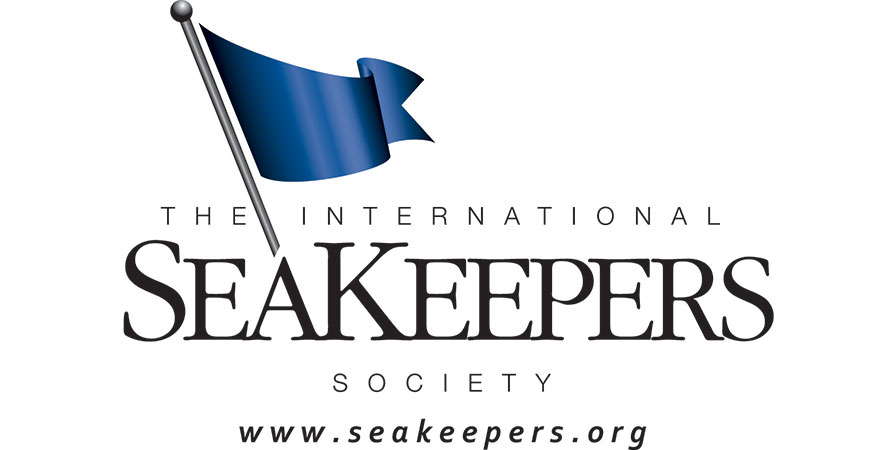The International SeaKeepers Society is currently accepting research proposals for DISCOVERY Yacht expeditions.
The SeaKeepers DISCOVERY Yachts program provides marine scientists with a unique and cost effective platform for at sea research by placing researchers on privately owned vessels to conduct oceanographic research. SeaKeepers is committed to promoting ocean research, education and conservation. We are looking for high impact projects that support our missions, foster scientific collaboration and stimulate further exploration.
How It Works:
For each expedition a scientist is paired with a vessel that can meet the required research needs, including location, itinerary and vessel specifications outlined in the research proposal. The yacht owners’ scientific interests are also taken into account when pairing scientists and their projects with their vessels. Therefore, it is important that submitted proposals speak to the scientific significance of the project, the outreach and broader impact potential and the proposed involvement of the owners, guests and crew onboard.
Principal Investigators are responsible for obtaining and financing any required research permits. Travel expenses to/from the vessel are not routinely covered.
Submit A Proposal:
Proposals are accepted on a rolling basis. All submitted research proposals must meet the following criteria:
- PDF Format, no more than 6 pages single-spaced 12-point standard font, 1” margins.
- Clearly state project title, goals, intended impacts, background information and/or previous related research, methodology, targeted location and timeline.
- Identify the Principal Investigator and all involved researchers and participants, their position title, affiliation and role in the expedition. Include a brief (one paragraph per person) biographical sketch for each researcher describing research, fieldwork and educational background. Provide current contact information for Principal Investigator.
- Specify any equipment to be brought onboard. All instruments, gear, consumables and chemicals brought by researchers will have to be pre-approved. There will be no invasive or permanent installations of any instruments, gear or laboratory spaces on our vessels.
- Specify any necessary vessel requirements, including number of berths (for overnight expeditions), deck space, water access, crane capacity, satellite communications, water depth restrictions, etc.
- Declare current status on funding: Is this project, or any part of this project, already funded? If yes, for how much and by whom?
Submit the final proposal via email to This email address is being protected from spambots. You need JavaScript enabled to view it..
Who Can Submit:
Only the Principal Investigator (PI) may submit a proposal. The PI for an expedition must have a 4-year college degree and at least two years work experience in the field. The PI must be affiliated with a reputable academic, government, private or not-for-profit institution or organization. The PI must have support from his/her institution and be able to acquire all necessary permits for the proposed expedition.
Restrictions:
As described in the submitted proposal, each participant must fill a necessary role during the expedition. All research team participants must be at least 18 years old and have a valid driver’s license or identification card. For expeditions outside the United States, a passport is required. All participants are expected to have health insurance.
Submitting More Than One Proposal:
There is no limit to the number of submitted or accepted proposals by a PI. However, a PI submitting project proposals on overlapping themes will reduce the likelihood of the proposals being accepted.
Planning an Expedition:
Unlike most research cruises, SeaKeepers expeditions on private vessels often come together quite quickly. On average, detailed planning starts three months prior to the departure date but could start as little as six weeks out. If a proposed timeline does not work, but the project is of interest to to an owner, SeaKeepers makes every reasonable effort to make the expedition work.
Post Cruise Reports and Press Releases:
The PI is expected to contribute to post cruise reports and press releases. The International SeaKeepers Society has numerous media contacts and works hard to promote the expedition to local, national and international media outlets. Specific requirements will be discussed with the PI during the planning phase of the expedition.
Liability Insurance:
SeaKeepers works with the private vessel and PI’s institution to make sure all insurance and liability requirements are met. The private vessel provides P&I insurance to everyone onboard during the expedition.
Opportunities for Additional Funding:
Depending on the financial requirements of the expedition, SeaKeepers can work with the PI to acquire additional funding through various sources. This is done on a case-by-case basis.
Proposal Review Process:
Proposals are reviewed by The International SeaKeepers Society’s Programming Team and Scientific Advisory Council. Principal Investigators will be contacted with any questions from the review committees and notified when a decision has been made.
Accepted proposals are shared, with limited details (project title, location, timeline, number of researchers, vessel requirements), as a project opportunity on The International SeaKeepers Society’s webpage and at meetings with SeaKeepers members. The full proposal document will remain confidential until the time that one of our yacht members expresses interest in participating in the project. The International SeaKeeepers Society cannot guarantee that an accepted project proposal will be selected by a yacht owner or the timeline in which this will occur; however, accepted project proposals will remain active in the system for two years. During this time, Principal Investigators may update their accepted proposals, assuming minor changes, with approval from the Director of Programs & Policies or withdraw their proposals at any time. After two years, the Principal Investigator will be notified and asked to resubmit an updated proposal if they wish.





